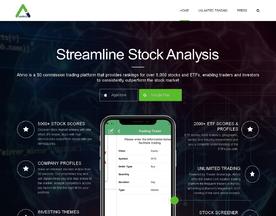What are convertible notes? Convertible notes are short-term debt that converts into equity, usually in the context of a future financing round, offering flexibility to startups.
Convertible notes are a popular type of financing for startups that are looking to raise capital. They are a type of debt that can be converted into equity at a later date, which makes them a flexible and attractive option for both investors and startups. The terms of a convertible note are typically negotiated between the startup and the investor, and they can vary widely depending on the specifics of the deal.

These notes are often used by startups that are in the early stages of their development, as they provide a way to raise capital without having to set a valuation for the company. This can be particularly beneficial for startups that are still in the process of developing their product or service, as it can be difficult to determine a fair valuation at this stage. By using these notes, the startup can delay the valuation until a later date when there is more information available to make an informed decision.
Overall, convertible notes are a popular and flexible financing option for startups that are looking to raise capital. They offer a way to raise funds without having to set a valuation for the company, and they can be converted into equity at a later date. While the terms of a convertible note can vary widely, they are typically negotiated between the startup and the investor to ensure that both parties are satisfied with the deal.
Key Takeaways
- These are a popular type of financing for startups that can be converted into equity at a later date.
- They are often used by startups in the early stages of development, as they provide a way to raise capital without having to set a valuation for the company.
- The terms can vary widely, but they are typically negotiated between the startup and the investor to ensure that both parties are satisfied with the deal.
Convertible Note Basics
Definition and Purpose
A convertible note is a type of debt instrument commonly used in early-stage financing. It is essentially an IOU that can be converted into equity at a later date. The purpose of this note is to provide a way for startups to raise funds without having to determine a valuation for their company at the time of investment. Instead, the valuation is determined at a later date when the note converts into equity.
Key Features
There are several key features that make it an attractive option for both investors and startups. One of the main features is the conversion rate, which is the ratio at which the debt converts into equity. This rate is typically set at the time of investment and can vary depending on the terms of the note.
Another key feature is the maturity date, which is the date by which the note must either be repaid or converted into equity. This date is usually set to give the startup enough time to raise additional funds before the note matures.
Types of Convertible Notes
There are several types of these notes, each with its own set of terms and conditions. The most common types include:
- Simple Agreement for Future Equity (SAFE): A type of convertible note that is commonly used in seed-stage financing. It is designed to be a simpler and more flexible alternative to traditional ones.
- Convertible Promissory Note: A type of note that is more commonly used in later-stage financing. It typically has a higher interest rate and more complex terms than a SAFE.
- Discount Note: A type of note that gives the investor a discount on the price of equity when the note converts. This is designed to compensate the investor for the risk they are taking by investing in a startup.
For more information on the notes, check out this resource from Investopedia.
Valuation and Conversion Mechanics
Valuation Cap
The valuation cap is the maximum valuation at which the convertible note will convert into equity. It is used to protect the investor from dilution in the event that the company’s valuation increases significantly before the next funding round. The valuation cap is negotiated between the investor and the company, and is typically set at a level that is reasonable for both parties.
Discount Rate
The discount rate is the percentage discount that the investor receives when converting the note into equity. It is used to compensate the investor for the risk they are taking by investing in the company at an early stage. The discount rate is typically set at around 20%, but can vary depending on the stage of the company and the level of risk involved.
Interest Rate
The interest rate on a convertible note is the rate at which interest accrues on the principal amount of the note. It is used to compensate the investor for the time value of their money. The interest rate on these notes is typically set at a low rate, around 2-6%, as the focus is on the conversion into equity rather than the interest payments.
Maturity Date
The maturity date is the date on which the note matures and must be repaid to the investor if it has not already converted into equity. It is used to provide a timeline for the investment, and to ensure that the investor is not tied up in the investment indefinitely. The maturity date is typically set at around 18-24 months from the date of the investment.
It is important for both the investor and the company to understand the valuation and conversion mechanics of a convertible note. A high valuation cap, low discount rate, low interest rate, and long maturity date may be more favorable to the investor, while a lower valuation cap, higher discount rate, higher interest rate, and shorter maturity date may be more favorable to the company.
For more information on convertible notes, visit Investopedia.
Convertible Note Terms
When investing in a startup, one common option is a convertible note. This type of investment allows the investor to convert their debt into equity at a later date. However, it is important to understand the terms of the convertible note before investing.
Interest
Convertible notes typically have an interest rate attached to them. This rate is usually lower than the interest rate on a traditional loan, but it still provides some return for the investor. The interest rate may be fixed or variable, depending on the terms of the note.
Principal
The principal of the convertible note is the amount of money that the investor is lending to the startup. This amount will be converted into equity at a later date, based on the terms of the note. It is important to carefully consider the amount of principal to invest, as it will impact the potential return on investment.
Repayment Clauses
Unlike traditional loans, convertible notes do not have a set repayment schedule. Instead, the note will convert into equity at a later date, based on the terms of the note. However, some convertible notes may include repayment clauses that require the startup to pay back the principal and interest if certain conditions are not met.
It is important to carefully review the repayment clauses of a convertible note before investing. A good resource for understanding the terms of a convertible note is Investopedia, which provides a clear and comprehensive explanation of the key terms and concepts.
Investor Considerations

Equity Potential
Convertible notes offer investors the potential for equity in a company at a later date. This can be an attractive option for investors who believe that the company has the potential to grow and become profitable. By investing in a convertible note, investors can secure a stake in the company without committing to a specific valuation of the company at the time of investment.
However, it is important for investors to carefully consider the terms of the convertible note. The conversion rate, discount rate, and maturity date can all have a significant impact on the equity potential of the investment.
Risk Assessment
As with any investment, convertible notes carry a certain level of risk. Investors should carefully evaluate the company’s financial health, management team, and market potential before investing in a convertible note.
Additionally, investors should consider the risks associated with the convertible note itself. For example, if the company fails to meet certain milestones or the valuation of the company decreases, the investor may not receive the expected return on investment.
Investment Vehicle
Convertible notes can be an attractive investment vehicle for both venture capitalists and angel investors. Venture capitalists may use convertible notes as a way to provide funding to early-stage companies without committing to a specific valuation. Angel investors may use convertible notes as a way to secure equity in a company without having to negotiate a complex deal.
It is important for investors to carefully consider the terms of the convertible note and the potential risks associated with the investment before committing to a deal.
For more information on convertible notes and their potential as an investment vehicle, investors may find this resource helpful.
Startup Perspectives

Fundraising Strategy
For startups, fundraising is a crucial aspect of growth. Early-stage companies often rely on seed investors, friends and family, and angel groups to raise capital. However, convertible notes have become an increasingly popular fundraising strategy for startups.
Convertible notes allow startups to raise capital without having to determine a valuation for the company. Instead, investors loan money to the startup with the expectation that the loan will convert into equity upon a future funding round. This allows startups to delay the valuation discussion until they have more traction and a better understanding of their worth.
Startups should carefully consider their fundraising strategy and weigh the benefits and drawbacks of convertible notes before committing to this approach. It is important to understand the terms of the convertible note, including the interest rate and conversion discount, to ensure that it aligns with the company’s goals.
Maintaining Control
One concern for founders when raising capital is maintaining control of their company. Convertible notes can help mitigate this concern by delaying the equity conversation until a future funding round. This allows founders to maintain control of their company during the early stages of growth.
However, it is important to note that as more investors come on board, founders may experience dilution of their ownership stake. Founders should carefully consider the amount of equity they are willing to give up in exchange for funding and weigh the potential benefits and drawbacks of each funding source.
Managing Dilution
Dilution is a natural part of the fundraising process, but it is important for startups to manage it effectively. Convertible notes can help mitigate dilution by delaying the valuation conversation until a future funding round. However, it is important for startups to carefully consider the terms of the convertible note and ensure that it aligns with their long-term goals.
Startups should also consider implementing equity incentive plans to align the interests of their team members with the success of the company. This can help motivate employees to work towards the company’s goals and help mitigate the effects of dilution.
Overall, convertible notes can be a valuable fundraising strategy for startups. However, it is important for startups to carefully consider the terms of the note and weigh the benefits and drawbacks before committing to this approach.
Here is a helpful resource for startups looking to learn more about convertible notes.
Convertible Note Agreements

Convertible note agreements are a popular way for startups to raise capital. They are debt instruments that can be converted into equity at a later date. This means that investors can lend money to a startup and then convert that debt into shares of stock when the startup raises its next round of funding.
Documentation Requirements
To create a convertible note agreement, there are several documentation requirements that must be met. The agreement should include the following:
- The principal amount of the loan
- The interest rate on the loan
- The maturity date of the loan
- The conversion terms, including the conversion price and the equity percentage
- The events that trigger conversion, such as a subsequent funding round
- The rights of the investor, such as anti-dilution protection
It is important to have an experienced lawyer draft the convertible note agreement to ensure that all necessary documentation requirements are met.
Legal Considerations
Convertible note agreements also have legal considerations that must be taken into account. These include:
- Securities laws: Convertible notes are considered securities, so they must comply with federal and state securities laws. This includes filing a Form D with the Securities and Exchange Commission (SEC).
- Tax implications: The conversion of debt to equity can have tax implications for both the investor and the startup. It is important to consult with a tax professional to understand the tax implications of a convertible note agreement.
- Dilution: Convertible notes can result in dilution of existing shareholders. It is important to consider the impact of dilution on the company’s capital structure.
Overall, convertible note agreements can be a useful tool for startups to raise capital. However, it is important to carefully consider the documentation requirements and legal considerations before entering into such an agreement.
For more information on convertible note agreements, visit the SEC’s website.
Advanced Topics

Convertible Debt vs. Equity Investment
Convertible debt and equity investment are two common ways for startups to raise capital. Convertible debt is a form of debt that can convert into equity at a later date, while equity investment involves selling shares of the company in exchange for investment.
One advantage of convertible debt is that it allows startups to defer the valuation of their company until a later date, when they may have more traction and a higher valuation. This can be beneficial for both the startup and the investor, as it allows for a more accurate valuation and potentially better terms for the investor.
However, equity investment provides more certainty for investors, as they have a clear ownership stake in the company. It also allows for more potential upside if the company performs well, as the investor’s ownership stake will increase in value.
SAFEs and Convertible Loan Notes
SAFEs (Simple Agreement for Future Equity) and convertible loan notes are two alternative forms of financing that are becoming increasingly popular.
SAFEs are similar to convertible debt, but instead of accruing interest and converting into equity at a later date, they provide the investor with the right to purchase equity at a future date, at a predetermined valuation. This can be beneficial for startups that are not yet ready to set a valuation, as it allows them to raise capital without committing to a specific valuation.
Convertible loan notes are similar to traditional convertible debt, but they typically have simpler terms and are easier to understand. They also often include a cap on the valuation at which the debt will convert into equity, which can be beneficial for both the startup and the investor.
Overall, each of these financing options has its own advantages and disadvantages, and it is important for startups to carefully consider which option is best for them.
For further reading on this topic, check out this article on Investopedia.
Market Trends and Future Outlook

Technology Startups
Convertible notes have become a popular fundraising tool for technology startups due to their flexibility and ease of use. With the rise of technology startups, convertible notes have become increasingly common in the venture capital landscape. This funding mechanism allows startups to raise capital quickly without having to set a valuation for their company, which can be difficult in the early stages of a company’s life cycle.
According to a report by Pitchbook, the number of convertible note deals in the technology sector has increased significantly in recent years, with over 2,000 deals in 2023 alone. This trend is expected to continue as more startups turn to convertible notes to raise capital.
One advantage of convertible notes for technology startups is that they often have a shorter time frame for raising capital, typically around six months, which allows them to focus on building their product and growing their business. Additionally, convertible notes often have lower interest rates than traditional loans, making them an attractive option for startups looking to minimize their debt load.
Venture Capital Landscape
Convertible notes have also become an increasingly popular funding mechanism in the venture capital landscape. According to a report by the National Venture Capital Association, convertible notes accounted for over 20% of all venture capital deals in 2023.
One reason for this trend is that convertible notes provide flexibility for both investors and startups. For investors, convertible notes offer the potential for a higher return on investment than traditional debt instruments, while also providing the option to convert their investment into equity if the company is successful.
For startups, convertible notes provide a way to raise capital quickly without having to set a valuation for their company. This can be particularly valuable in the early stages of a company’s life cycle, when valuations can be difficult to determine.
Overall, the future outlook for convertible notes in the venture capital landscape looks positive, with many investors and startups continuing to see the benefits of this funding mechanism.
Here is a link to a resource with more information on convertible notes.
Frequently Asked Questions

What are the key differences between a convertible note and direct equity investment?
A convertible note is a type of debt instrument that can be converted into equity at a later date. In contrast, a direct equity investment involves purchasing shares of a company’s stock outright. One key difference between the two is that convertible notes typically have a maturity date, while equity investments do not. Additionally, convertible notes may offer more flexibility in terms of how and when they convert into equity.
How does a convertible note cap impact the conversion into equity?
A convertible note cap is a provision in a convertible note agreement that sets a maximum valuation for the company when the note converts into equity. This can impact the conversion by limiting the number of shares that the investor will receive upon conversion. If the valuation of the company exceeds the cap, the investor may receive fewer shares than they would have without the cap.
What are the typical terms and conditions found in a convertible note agreement?
Common terms and conditions found in a convertible note agreement include the interest rate, maturity date, conversion terms, and any applicable discounts or caps. The agreement may also include provisions related to events of default, repayment terms, and the rights of the investor in the event of a liquidation or sale of the company.
How do convertible notes compare to SAFEs in terms of investor rights and conversion mechanics?
Convertible notes and SAFEs (Simple Agreement for Future Equity) are both popular forms of early-stage startup financing. While both can offer flexibility and simplicity, convertible notes tend to be more established and offer more standardized terms. Additionally, convertible notes may offer more protection for investors in the event of a company sale or liquidation.
Are convertible notes considered an asset or liability on a company’s balance sheet?
Convertible notes are generally considered a liability on a company’s balance sheet, as they represent a debt that will need to be repaid or converted into equity at a later date. However, the specific accounting treatment may vary depending on the terms of the note and the applicable accounting standards.
What are the implications for investors when a convertible note matures without conversion?
If a convertible note matures without conversion, the investor may have the right to demand repayment of the principal and any accrued interest. However, this will depend on the specific terms of the note agreement. Additionally, the investor may have the option to extend the maturity date or convert the note into equity at a later time.
For more information on convertible notes, see this guide.















